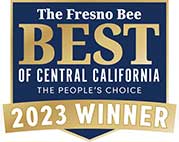- AET-015
- CAD for Agriculture
- Credit(s) 2
CAD for Agriculture
AET 015 is an introduction to computer aided drafting for agriculture; including engineering,
design and construction. Laboratories will utilize AutoCAD software to complete projects.
Topics include: drawing setup, 2-D projections including automatic dimensioning and
hatching, isometric construction, drawing layers, library symbols, and use of 3-D
drawing software.
- Class Hours:
- 108 Laboratory
- Transfers to:
- UC/CSU
- AET-021
- Ag-Irrigation Management
- Credit(s) 3
Ag-Irrigation Management
AET 021 is designed to teach the principles of irrigation system management for dealers,
regulators and farmers (or those interested in those areas). Topics such as surface
irrigation methods (furrow and border strip) and pressurized systems (micro and sprinklers)
are covered. Students will learn when and how much to irrigate; includes sections
on evapotranspiration and crop coefficients, practical irrigation scheduling techniques,
how irrigation efficiency and uniformity influence irrigation scheduling, and salinity
effects. This course aligns with the Irrigation Association's Certified Irrigation
Specialist Program. (CAIS).
- Class Hours:
- 36 Lecture | 54 Laboratory
- Transfers to:
- CSU
